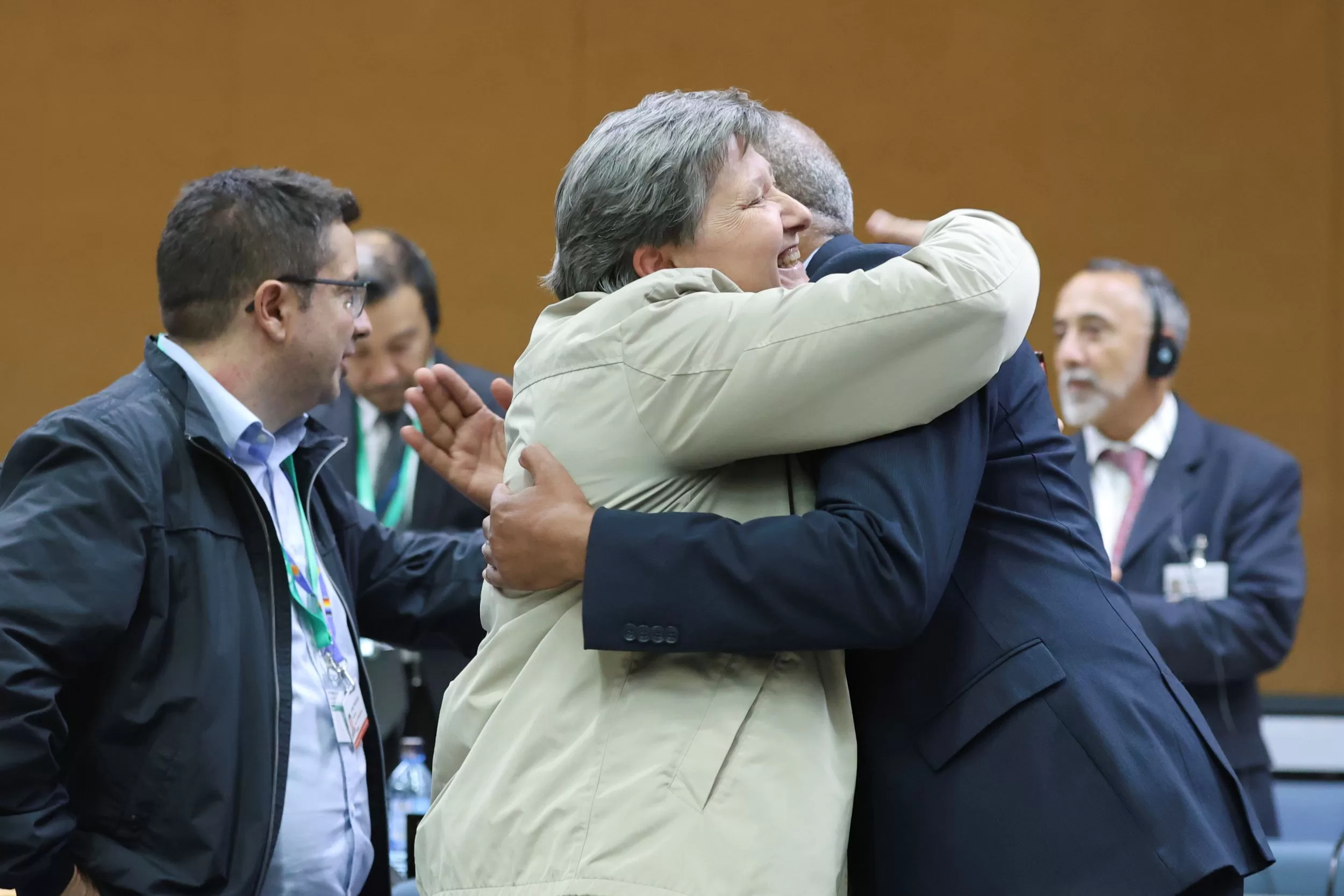BC3’s scientific director María José Sanz is appointed member of the Task Force Bureau on National Greenhouse Gas Inventories of the IPCC


María José Sanz, BC3’s scientific director, has been elected member of the IPCC’s Task Force Bureau on National Greenhouse Gas Inventories (TFI) for the next assessment cycle.
The IPCC elections took place last week in Nairobi (Kenya) during the 59th Session of the IPCC Plenary. During the four-day-long meeting, which started on Tuesday the 25th and ended on Friday the 28th, the 195 countries represented in the IPCC renewed all the positions of responsibility that make up the Bureau for the seventh assessment cycle, which will last 5-7 years.
“The next decade will be decisive in driving climate action. As part of this group, I hope to contribute to improving the methodologies and capacities of all countries to demonstrate the progress of mitigation in the context of the Transparency Framework of the Paris Agreement.” (María José Sanz, scientific director, BC3)
Nominated by the Spanish Government, María José Sanz was elected to form part of the TFI. BC3’s scientific director is the second Spaniard to form part of the IPCC Bureau. She authored the Fourth Assessment Report, the recent Special Report on Land Use and Climate Change in the sixth assessment cycle, and all the methodological reports produced by the TFI since 2003.
The members of the new IPCC’s Bureau in groups I, II, III and the TFI can be found here.
Background
The IPCC was created in 1988 to facilitate comprehensive assessments of the state of scientific, technical, and socioeconomic knowledge about climate change, its causes, potential impacts, and response strategies. Since the beginning of its work in 1988, the IPCC has produced five assessment reports consisting of several volumes. Now begins its seventh evaluation cycle.
IPCC Bureau membership is renewed at the end of each assessment cycle. In March, the sixth evaluation cycle came to an end with the publication of the synthesis report that summarized eight years of work and six large documents with the largest and best evidence on climate change. Nominations for elected positions must come from governments or from IPCC members. Finally, the elected candidates are voted by representatives of the 195 member countries of the IPCC.
